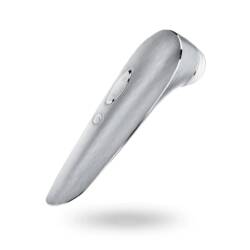Top Period Tracking Apps–Ranked by Privacy Settings
Here’s how the most popular period trackers are dealing with your data.

Keeping your period-related information safe and private is now more important than ever.
On June 24, the United States Supreme Court officially overturned the Roe v. Wade ruling on abortion rights. Now, each state can choose to limit or ban abortion altogether.
Because of this, lawyer Elizabeth McLaughlin turned to Twitter to warn women that they should immediately delete their period tracking apps.
“If you think that your data showing when you last menstruated isn’t of interest to those who are about to outlaw abortion, whew do I have a wakeup call for YOU,” tweeted McLaughlin. “Combine that with location tracking information and when you last menstruated and where you are seeking healthcare and you have a target on your back.”
According to McLaughlin, in states where abortion is illegal, data collected by period tracking apps could be used as digital evidence against a woman who ended her pregnancy.
How popular period trackers handle your data
Even if you’re not living somewhere abortion is illegal, it’s still important to ensure that your health-related data are safe. For this reason, we’ve compiled a list of some of the most secure period apps available.
1. Clue
Clue is one of the safest period trackers because it’s based in Europe. Therefore, it must comply with GDPR and other stringent regulations about privacy.
Ida Tin, co-founder and chairwoman at Clue, explained in a blog post how the app stores and anonymizes your data. Each data point (i.e. a bit of information like the last time you had sex or period cramps) is de-identified, so it cannot be traced back to the user’s identity.
The company only shares anonymized data with “carefully-selected researchers” for studies about menstrual health. Tin also explained that “it’s unlikely for Clue to be hacked with intense security measures.”
Clue reacted to the Roe v. Wade overturn by reassuring US-based users that their data won’t be shared with the authorities.
In a statement on its official website, Clue also explained that European laws prevent the company from sharing data with the US authorities, even if said data are subpoenaed.
“We would have a primary legal duty under European law not to disclose any private health data,” wrote Clue. “We repeat: we would not respond to any disclosure request or attempted subpoena of our users’ health data by US authorities. But we would let you and the world know if they tried.”
2. Stardust
Following the Roe v. Wade overturn, Stardust became one of the most downloaded apps on the Google Play Store. The reason? Because it was quick to promise increased privacy to users in the US.
“If the government issues a subpoena to find out about your menstrual tracking data, we will not be able to produce anything for them,” the company wrote in a tweet just days after the decision of the Supreme Court. Stardust claimed that the data you enter in the app can’t be associated with your identity.
Stardust also promised to never sell the users’ personal information to any third party. However, the critics say that these claims are not true.
TechCrunch claimed that if you use your phone number to log in, Stardust periodically shares it with an analytics platform called Mixpanel. No health data from the app are shared with the third-party platform.
Rachel Moranis, Stardust’s founder, explained in a statement to TechCrunch that sharing with Mixpanel was disabled in the newest version of the app.
TechCrunch claims that days after Moranis’ statement, the company changed its privacy policy, saying that they could share depersonalized data with third parties as well as the government and law enforcement authorities.
Stardust said in a tweet that the company is working on a way for users to use the app without creating an account and to “opt out of providing any personal identifiable information.”
3. Flo
In 2021, the popular period tracking app Flo was in the spotlight, but not in a good way. The Federal Trade Commission accused it of sharing sensitive health-related information with third parties like Facebook and Google.
The app also allegedly misled consumers by “promising that such information would be kept private.” Flo has settled the dispute by having an independent review of the company’s privacy practices, as The Verge reports.
In response to the Roe v. Wade overturn, Flo will offer an Anonymous Mode. As NPR reports, this upcoming feature will let users dissociate their identifiable data from their accounts. Users who already have an account will be able to keep using the app just like before—but their name, email address, and technical identifiers will be removed.
Your safest bet could be not using an app at all
If you live a state where abortions are (or will become soon) illegal and are concerned about prosecution, your safest bet is tracking your period using a physical notebook, like MIT Technology Review suggests. On Etsy and other sites, you’ll find plenty of printable period trackers. If you don’t want to go completely analog, the same article recommends using an interactive spreadsheet or digital calendar.
Even if you aren’t affected by the Roe v. Wade overturn, pay attention to where your sensitive data goes. Remember to read the privacy policy of any period tracker carefully before using it.
Image sources: Cliff Booth

















